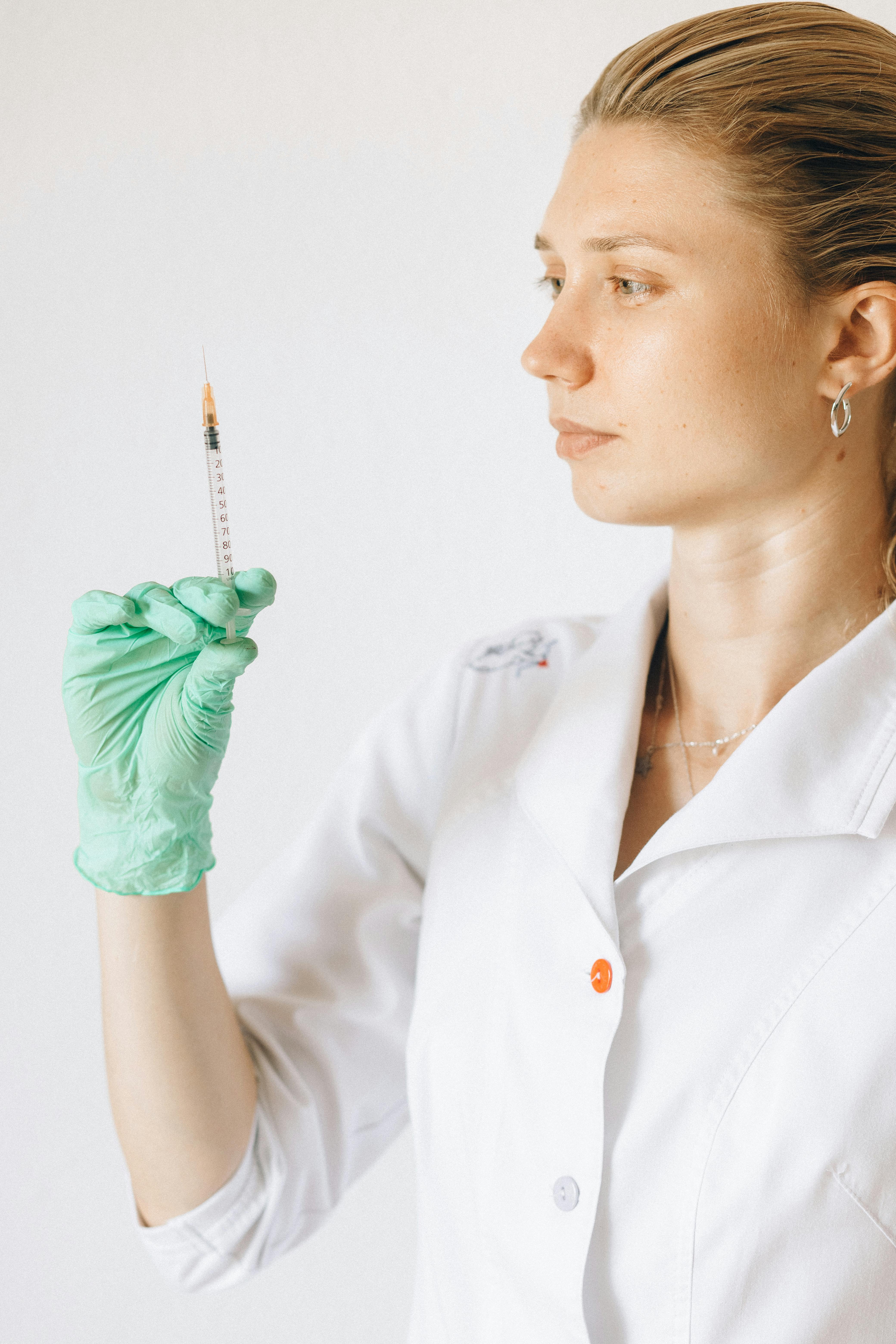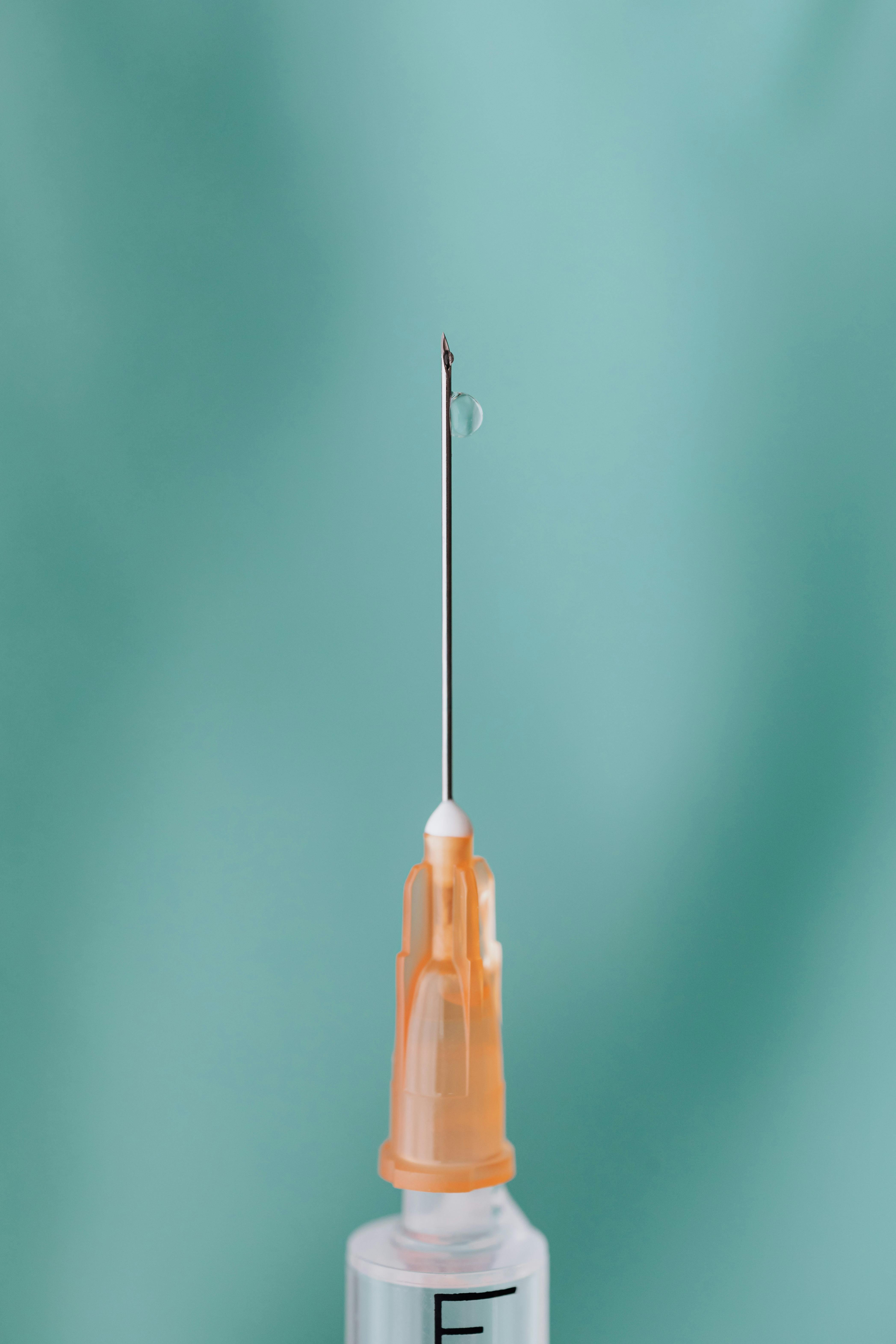Making sure your furry best friend stays healthy is a top priority, and one of the key ways to do that is by following the vaccination schedule for dogs. Ensuring that your dog receives the necessary vaccines at the right time can significantly prevent the spread of harmful diseases and protect their overall well-being. In this article, we will explore the importance of adhering to the vaccination schedule for dogs and why it is crucial for their long-term health. So, grab a cup of tea, sit back, and let's dive into the world of dog vaccinations!
Benefits of Vaccinating Dogs
Prevention of deadly diseases
One of the most significant benefits of vaccinating dogs is the prevention of deadly diseases. Vaccinations can protect dogs from a range of diseases that can be fatal if left untreated. Diseases such as distemper, rabies, parvovirus, and adenovirus can cause severe illness and even death in dogs. By vaccinating your furry friend, you can greatly reduce the risk of them contracting these life-threatening diseases.
Protection against infectious diseases
In addition to preventing deadly diseases, vaccinations also offer protection against various infectious diseases. Dogs can easily come into contact with other animals or environments that may harbor infectious agents. By vaccinating them against diseases like Bordetella bronchiseptica, leptospirosis, Lyme disease, canine influenza, and canine parainfluenza, you can significantly reduce the risk of your dog contracting these infections and experiencing the associated health complications.
Promotion of herd immunity
Vaccinating your dog not only protects them but also contributes to the promotion of herd immunity. Herd immunity occurs when a large portion of the population is vaccinated and immune to certain diseases, making it difficult for the disease-causing agents to spread. By vaccinating your dog, you are not only safeguarding their health but also playing a role in protecting other dogs within your community or social circles.
Cost-effective in the long run
Investing in your dog's vaccinations can prove to be cost-effective in the long run. While the upfront cost of vaccinations may seem significant, it is far less expensive than potential veterinary bills resulting from treating preventable diseases. By keeping your dog up to date with their vaccinations, you can minimize the risk of them falling ill and needing expensive treatments. Vaccinations ultimately serve as a proactive measure to protect your dog's health and save you from unnecessary financial burdens.
Core Vaccines for Dogs
Distemper
Distemper is a highly contagious viral disease that affects dogs, often resulting in severe illness or death. However, this devastating disease is preventable through vaccination. The distemper vaccine is typically administered as a combination vaccine along with other core vaccines to provide comprehensive protection against various diseases.
Rabies
Rabies is a fatal viral disease that can be transmitted to humans and other animals. Vaccinating your dog against rabies is not only crucial for their own health and safety but also a legal requirement in many areas. Rabies vaccinations are typically given in accordance with local laws and regulations, and regular boosters may be necessary to maintain the dog's immunity.
Parvovirus
Parvovirus is a highly contagious viral disease that primarily affects puppies. This infection can lead to severe gastrointestinal symptoms, such as vomiting, diarrhea, and dehydration, often causing death. Vaccinating your dog against parvovirus is essential to protect them from this devastating disease. The parvovirus vaccine is usually administered as part of the core combination vaccine.
Adenovirus
Adenovirus, specifically canine adenovirus type 2 (CAV-2), is a viral respiratory disease that can cause kennel cough and other respiratory illnesses in dogs. It is often included in the core combination vaccine, along with distemper and parvovirus. Vaccinating your dog against adenovirus can help prevent these respiratory infections and ensure their overall respiratory health.

This image is property of images.pexels.com.
Non-Core Vaccines for Dogs
Bordetella bronchiseptica
Bordetella bronchiseptica is a bacterial infection commonly associated with kennel cough. While not typically life-threatening, kennel cough can be highly contagious and result in uncomfortable symptoms for your dog. Vaccinating against Bordetella bronchiseptica is especially important if your dog frequently interacts with other dogs in environments such as boarding facilities, dog parks, or grooming salons.
Leptospirosis
Leptospirosis is a bacterial disease that can be transmitted to dogs through contact with contaminated water, soil, or urine from infected animals. This disease can cause severe liver and kidney damage in dogs and can also be transmitted to humans. Vaccinating your dog against leptospirosis is vital, particularly if they are exposed to outdoor environments where the bacteria may be present, such as rural areas or regions with high wildlife populations.
Lyme disease
Lyme disease is a tick-borne illness caused by the bacteria Borrelia burgdorferi. Dogs can contract Lyme disease through tick bites, which can lead to joint pain, fever, lethargy, and other symptoms. If you live in an area with a high prevalence of ticks or frequently engage in outdoor activities with your dog, vaccinating them against Lyme disease can provide an additional layer of protection against this potentially debilitating illness.
Canine influenza
Canine influenza, also known as dog flu, is a viral respiratory infection that can cause coughing, sneezing, fever, and other flu-like symptoms in dogs. While not typically life-threatening, it can spread quickly in areas with a high dog population. If your dog frequently interacts with other dogs or visits places where dog flu outbreaks have occurred, vaccinating them against canine influenza can help reduce the risk of infection.
Canine parainfluenza
Canine parainfluenza is another viral respiratory infection that contributes to kennel cough. It is highly contagious and can spread rapidly among dogs in close proximity to one another, such as in kennels, shelters, or doggy daycare facilities. Vaccinating your dog against canine parainfluenza can help minimize the risk of them contracting this respiratory infection and experiencing the associated discomfort.
Preventive Health Measures
Consultation with a veterinarian
Before starting or updating your dog's vaccination schedule, it is essential to consult with a veterinarian. They will assess your dog's overall health, lifestyle, and risk factors to determine the most appropriate vaccinations for your furry friend. A veterinarian can also address any concerns or questions you may have and provide guidance on maintaining your dog's health and well-being.
Determining the appropriate vaccination schedule
Once you have consulted with a veterinarian, they will help determine the appropriate vaccination schedule for your dog. The vaccination schedule may vary based on factors such as the dog's age, health condition, vaccination history, and risk of exposure to various diseases. Following the recommended vaccination schedule is crucial to ensure your dog receives vaccinations at the appropriate times for maximum effectiveness.
Regular booster shots
Many vaccines require periodic booster shots to maintain immunity. Booster shots help reinforce the initial immune response and extend the duration of protection against diseases. It is important to schedule and follow through with these booster shots to ensure continuous protection for your dog. Your veterinarian will advise you on the specific timing and frequency of booster shots based on the vaccines administered.
Routine physical examinations
In addition to vaccinations, routine physical examinations are essential for your dog's overall preventive health care. Regular check-ups allow veterinarians to assess your dog's general well-being, detect any underlying health issues, and discuss necessary preventive measures, including vaccinations. These examinations provide an opportunity to address any concerns and ensure that your dog is receiving appropriate care for their individual needs.

This image is property of images.pexels.com.
Puppy Vaccination Schedule
Starting vaccinations at six to eight weeks
The puppy vaccination schedule typically begins around six to eight weeks of age. At this stage, puppies have reached an appropriate age to initiate their vaccinations and begin developing immunity against various diseases. Starting vaccinations early helps protect puppies during their vulnerable early stages of life.
Initial combination vaccine
The initial vaccination typically includes a combination vaccine that provides protection against multiple diseases. This combination vaccine commonly includes protection against distemper, parvovirus, adenovirus, and potentially other core diseases depending on your veterinarian's recommendation. Administration of the initial combination vaccine is typically followed by subsequent rounds of the same vaccine to reinforce immunity.
Additional combination vaccines
Throughout the puppy vaccination schedule, additional rounds of combination vaccines may be administered, depending on your veterinarian's recommendation. These additional vaccines continue to build on the puppy's immunity and provide protection against key diseases. Your veterinarian will guide you on the recommended timing and number of additional combination vaccines needed for your puppy.
Rabies vaccination timeline
Rabies vaccination is usually given separately from other vaccines and follows a specific timeline dictated by local laws and regulations. Depending on the region, the first rabies vaccination may be administered around the age of three to four months. This initial vaccination is typically followed by booster shots at regular intervals to maintain consistent protection against rabies.
Final boosters for full protection
As your puppy completes the vaccination schedule, there may be a final set of boosters to ensure full protection against various diseases. These boosters help solidify your puppy's immunity and provide long-term protection into adulthood. Following the recommended timing and completion of the vaccination schedule is vital to maximize the effectiveness of the vaccines and safeguard your puppy's health.
Adult Dog Vaccination Schedule
Providing a health history to the veterinarian
When transitioning from the puppy vaccination schedule to the adult dog vaccination schedule, it is crucial to provide a comprehensive health history to your veterinarian. This includes details of prior vaccinations, any adverse reactions, and any health issues your dog may have experienced. This information allows the veterinarian to tailor the vaccination schedule to your adult dog's specific needs.
Ensuring core vaccinations are up-to-date
Core vaccinations are crucial for adult dogs as well. Checking and ensuring that your dog's core vaccinations, such as distemper, rabies, parvovirus, and adenovirus, are up-to-date is essential for their ongoing protection. Core vaccinations are typically provided at regular intervals to maintain immunity, and your veterinarian will guide you on the appropriate timing and frequency of booster shots for these vaccines.
Assessing risks for non-core vaccinations
For non-core vaccines, assessing the risks and potential benefits is necessary when deciding on the vaccination schedule for adult dogs. Non-core vaccines, such as those for Bordetella bronchiseptica, leptospirosis, Lyme disease, canine influenza, and canine parainfluenza, may be recommended based on your dog's lifestyle and risk of exposure to specific diseases. Discussing these risks with your veterinarian allows you to make informed decisions regarding non-core vaccinations.
Tailoring the vaccination schedule accordingly
Based on the assessment of your adult dog's health history and risk factors, the vaccination schedule will be tailored accordingly. Your veterinarian will determine the appropriate timing and combination of vaccines to ensure your dog's continued protection against preventable diseases. Establishing an individualized vaccination schedule helps optimize your adult dog's immunity and overall well-being.
Scheduling regular check-ups
Regular check-ups remain an integral part of your adult dog's preventive health care routine. By scheduling regular visits to the veterinarian, you can assess your dog's overall health and discuss any changes or concerns. These check-ups present an opportunity to review your dog's vaccination status, monitor their response to vaccines, and make any necessary adjustments to their preventive care plan.

This image is property of images.pexels.com.
Why It Is Important to Stick to the Vaccination Schedule
Establishing immunity at the right time
Following the recommended vaccination schedule ensures that your dog receives the necessary vaccines at the appropriate times. Vaccinations work by stimulating the immune system to produce protective antibodies against specific diseases. Administering vaccines at the right time allows the immune system to establish immunity before potential exposure to pathogens, providing the best chance for protection.
Comprehensive disease protection
By adhering to the vaccination schedule, your dog can benefit from comprehensive protection against a range of diseases. Each vaccine targets specific pathogens or bacteria responsible for causing diseases. By ensuring your dog receives all the recommended vaccines, you can minimize the risk of them contracting preventable diseases and experiencing the associated health complications.
Preventing vaccine-preventable outbreaks
Keeping up with the vaccination schedule plays a crucial role in preventing vaccine-preventable outbreaks. Vaccines work not only to protect individual dogs but also to maintain herd immunity within the dog population. Adequate vaccination coverage helps prevent the spread of diseases and reduces the likelihood of outbreaks, safeguarding the health of not just your dog but also those in the broader community.
Maintaining herd immunity
Herd immunity is achieved when a significant portion of the population is immune to a particular disease, making it difficult for the disease to spread. By following the vaccination schedule, you contribute to maintaining herd immunity, protecting vulnerable individuals who may not be able to receive vaccines or have a weaker immune response. The more dogs that are vaccinated, the greater the overall protection for the entire dog population.
Avoiding legal complications
Adhering to the vaccination schedule is essential to avoid legal complications. Many jurisdictions require dogs to have specific vaccinations, such as rabies, to ensure public health and safety. Failing to comply with these legal requirements may result in penalties, restrictions on activities with your dog, or even legal consequences. Sticking to the vaccination schedule helps ensure your dog remains in compliance with local laws and regulations.
Consequences of Not Following the Vaccination Schedule
Increased susceptibility to diseases
Not following the vaccination schedule leaves your dog at an increased risk of contracting vaccine-preventable diseases. Without proper immunity, your dog becomes more susceptible to infections and the associated health complications. The absence of vaccinations leaves them defenseless against these diseases, potentially leading to severe illness or even death.
Risk of severe illness or death
By not adhering to the vaccination schedule, you expose your dog to the risk of severe illness or death. Diseases such as distemper, parvovirus, rabies, and other preventable diseases can have devastating effects on a dog's health. Without the protection provided by vaccinations, your dog may suffer unnecessarily and may require costly and intensive medical treatments that may not always be successful.
Spreading diseases to other animals
Failure to vaccinate your dog puts not only their health at risk but also the health of other animals they come into contact with. Dogs who contract vaccine-preventable diseases can potentially spread those diseases to other unvaccinated or immunocompromised animals, intensifying the risk of outbreaks and further endangering the overall health of the animal community.
Potential health risks for humans
Some vaccine-preventable diseases, such as rabies and leptospirosis, can affect humans as well. By not following the vaccination schedule, you not only expose your dog to potential health risks but also put yourself and your family at risk. Vaccinating your dog protects not just their health but also helps prevent the spread of diseases to humans.
Financial burden of treating preventable diseases
Treating preventable diseases can result in significant financial burdens. The cost of veterinary care, medications, hospitalization, and potential specialized treatments for preventable diseases can be substantial. By not following the vaccination schedule, you risk incurring these unnecessary expenses and potential financial strain. Vaccinations prove to be a cost-effective preventive measure in comparison to the potential expenses associated with treating preventable diseases.
The Importance of Regular Booster Shots
Reinforcing initial immunity
Regular booster shots play a crucial role in reinforcing the initial immune response triggered by vaccinations. The immune system's response to vaccines gradually wanes over time, resulting in a decrease in protective antibodies. Booster shots help stimulate the immune system to produce a renewed immune response, strengthening the dog's immunity against specific diseases.
Keeping vaccinations up-to-date
By scheduling and ensuring regular booster shots, you can keep your dog's vaccinations up-to-date. Vaccinations are not a one-time event but require periodic reinforcement to maintain adequate protection. By staying on top of booster shots, you can ensure that your dog's immunity remains robust, minimizing the risk of them contracting diseases and maintaining their overall health.
Ensuring continuous protection
Regular booster shots ensure continuous protection against diseases. As the immune response induced by initial vaccinations naturally wanes over time, booster shots help maintain a sufficient level of protective antibodies to combat potential pathogens effectively. The timely administration of booster shots helps bridge the immunity gap and ensures that your dog is continuously protected.
Reducing the risk of outbreak
Regular booster shots are instrumental in reducing the risk of disease outbreaks. As more dogs receive booster shots and maintain their immunity, the overall population's level of protection against diseases increases. This reduces the likelihood of diseases spreading and decreases the risk of outbreaks within communities or other environments where dogs come into contact with one another.
Conclusion
Vaccinating dogs is a crucial responsibility for any dog owner. The benefits of vaccinating dogs are vast, including the prevention of deadly diseases, protection against infectious diseases, the promotion of herd immunity, and cost-effectiveness in the long run. Core vaccines, such as those for distemper, rabies, parvovirus, and adenovirus, are essential for every dog's health, while non-core vaccines can provide additional protection based on individual risks and lifestyle factors.
Following a vaccination schedule is vital, both during the puppy stage and throughout your dog's adult life. The puppy vaccination schedule typically begins at six to eight weeks, with initial combination vaccines and subsequent rounds to establish immunity and provide comprehensive protection. As your dog transitions into adulthood, regular check-ups and adherence to the appropriate vaccination schedule ensure ongoing protection against diseases.
Sticking to the vaccination schedule offers numerous benefits, including establishing immunity at the right time, comprehensive disease protection, prevention of vaccine-preventable outbreaks, maintenance of herd immunity, and avoiding legal complications. Neglecting the vaccination schedule can have severe consequences, such as increased susceptibility to diseases, the risk of severe illness or death, spreading diseases to other animals, potential health risks for humans, and the financial burden of treating preventable diseases.
Regular booster shots play a critical role in reinforcing immunity, keeping vaccinations up-to-date, ensuring continuous protection, and reducing the risk of outbreaks. By prioritizing regular booster shots, you can maintain your dog's overall health and well-being.
Vaccinating dogs is a fundamental responsibility that protects against life-threatening diseases and ensures the well-being of our beloved furry companions. By understanding the importance of following the vaccination schedule, we can provide our dogs with the best possible care and safeguard their health for years to come.


